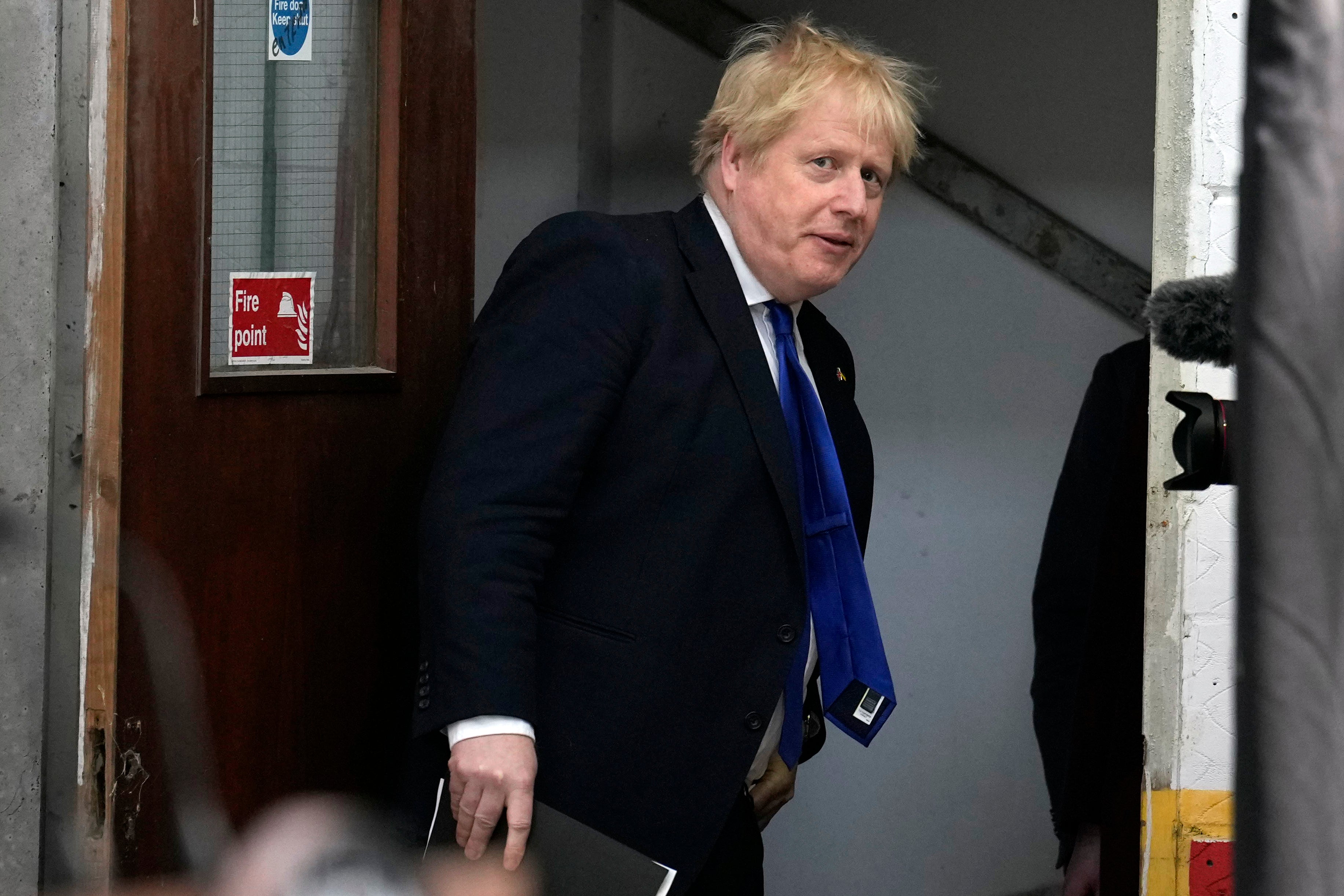What to expect when Boris Johnson ‘sets the record straight’ next week
The PM has promised to say more when he updates parliament. What will he say, asks John Rentoul


The prime minister said yesterday: “I will set the record straight in any way that I can.” He was asked if he was going to correct the record about Downing Street gatherings during lockdown. He told the Commons in December: “The guidance was followed and the rules were followed at all times.”
Yet on Tuesday, he paid a penalty for breaking the law, so that statement will have to be amended, and at the earliest possible opportunity – which will be this Tuesday, when parliament returns after the Easter recess.
“I shall be saying more when I update parliament next week,” Boris Johnson told journalists after his speech about the Rwanda asylum plan. But what will he say to MPs, and how much further will he go than the short statement he put out after receiving his penalty notice and paying the fine?
In the past, he has suggested that he will have much more to say when the investigations are concluded, implying that he refuses to accept the common view that he broke the law. Presumably, full disclosure will have to wait for the completion of the Metropolitan Police investigation and the publication of Sue Gray’s complete report.
But in the meantime, he will presumably want to do more next week than simply refer to this week’s statement. Specifically, though, how far will he push out the boat of legal pedantry to claim that he hasn’t broken the law?
Well, in his statement on Tuesday, he said that “at the time, it did not occur to me” that the “brief gathering” on his birthday in June 2020, “during which people I work with kindly passed on their good wishes”, might have been a breach of “the rules” – by which he meant the law. “But of course the police have found otherwise and I fully respect the outcome of their investigation.”
Respecting the police decision is not the same as accepting it – which Carrie Johnson did in the statement issued by her spokesperson. But it would probably be unwise for the prime minister to say anything more to suggest that the police have got it wrong.
Legally, paying a fixed penalty notice is not an admission of guilt, and does not constitute a criminal record. It means that the police believe you have committed a criminal offence, but to save time and trouble, if you pay up it will be forgotten – unless you are a leading member of the government that passed the law in the first place, in which case it will be remembered in the history books.
Even so, it is hard for Johnson to insist that he didn’t break the law and that the police have got it wrong. He may save that for his memoirs. Not only has the Met Police taken advice from lawyers and the Crown Prosecution Service (CPS) – now there’s a freedom of information request – but if Johnson really thought the police decision was mistaken he ought to have refused to pay and said: “See you in court.”
There is no appeal against a penalty notice, but if you refuse to pay, the police and the CPS may launch a prosecution in the magistrates’ court. And in this case, the police have taken the precaution in advance of consulting a QC and the CPS beforehand. The prime minister can hardly say he thinks he is innocent but wants to avoid the media circus of a court case.
So, when Johnson “updates parliament” on Tuesday, he will probably stick to the word “respect”, repeat his non-specific apology, retell the story of how hard he was working that day and how kind it was for his colleagues to wish him happy birthday for nine minutes (“less than 10 minutes”), and say again that he understands the anger that “many” will feel.
That paragraph of his statement this week was a masterpiece of not quite admitting that he broke the law: “I understand the anger that many will feel that I myself fell short when it came to observing the very rules which the government I lead had introduced to protect the public, and I accept in all sincerity that people had a right to expect better.”
To keep up to speed with all the latest opinions and comment sign up to our free weekly Voices Dispatches newsletter by clicking here
Expect him to read out those words, or words very like them, carefully, and to avoid any ad libs that might leave further hostages to fortune on the parliamentary record. He may add a bit about feeling the pain of families who lost loved ones during the pandemic, and about taking full responsibility for everything that happens in his government.
Then he will say he has had a staff clearout, he has been on the phone to President Zelensky, he is taking back control of Rwanda’s borders, delivering on the people’s priorities and that Labour has no plan (Conservative cries of “More!”).
In answer to questions, he will avoid the word “misled”, because he does not want to get into a philosophical debate about the difference between “knowingly” misleading parliament (lying) and doing so inadvertently (not lying). As the session drags on, he might mention that Keir Starmer had a bottle of beer during a work meeting in lockdown.
But anyone hoping for Boris Johnson to be finally nailed for “knowingly misleading parliament” is in for another big disappointment.






Join our commenting forum
Join thought-provoking conversations, follow other Independent readers and see their replies
Comments